Overview
The Surgical Critical Care Fellowship at Mayo Clinic's campus in Rochester, Minnesota, is a one-year program. During rotations in this fellowship, you gain experience managing critically ill surgical patients from all surgical subspecialties. The trauma and general surgical intensive care unit (ICU) is the core rotation and encompasses seven to nine months of the fellowship.
You also have rotations in the following areas:
- Vascular and thoracic ICU
- Cardiovascular surgical ICU
Additional elective rotations in nephrology ICU, pediatric ICU, transplant ICU, burn care, and echocardiography are available.
Your level of responsibility grows as the fellowship progresses. By the end of the year, you should be competent in managing the full range of problems encountered by surgical patients in an ICU. Throughout the fellowship, you learn from faculty how to manage patients, and you are mentored in the art of adult education.
Accreditation
The Surgical Critical Care Fellowship is accredited by the Accreditation Council for Graduate Medical Education (ACGME).
Certification
After successfully completing the program, you are eligible to take the Surgical Critical Care Certifying Examination offered by the American Board of Surgery.
Program history
The Surgical Critical Care Fellowship at Mayo Clinic in Rochester, Minnesota, began in 1992 and became ACGME accredited in 1993. Since that time, more than 35 physicians have completed this fellowship. Two fellows are accepted into the program annually.
More from Mayo Clinic School of Graduate Medical Education
/0x0:512x512/prod01/channel_2/media/mccms/content-assets/academics/residencies-and-fellowships/3319834_0363-512X512.jpg)
Choosing Mayo Clinic
/0x0:512x512/prod01/channel_2/media/mccms/content-assets/shared-documents/campus-MEYR6203-pic-tile.jpg)
Rochester, MN
Campus and community
/0x0:512x512/prod01/channel_2/media/studio-sites/mccms-reference-guide/512X5121676671_3824027_0010_C.jpg)
Stipend and benefits
Meet the faculty
We have five core faculty who are highly regarded figures in functional neurosurgery as master clinicians, educators, and researchers. Their expertise encompasses all aspects of functional neurosurgery and their commitment to training and mentorship is unparalleled. As a group, they hold multiple highly coveted research grants, are PIs on cutting-edge clinical trials along with holding leadership positions in organized neurosurgery.
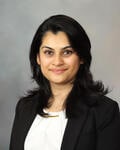 |
Rushna Ali, M.D.Program Director
Dr. Ali is an expert on functional neurosurgical interventions including neuromodulation and lesioning procedures for cancer and chronic pain, movement disorders, cranial neuralgias, epilepsy, and neurorehabilitation and restoration. Her research interests are focused on clinical trials for advancing innovative care.
|
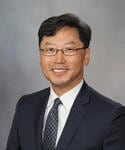 |
Kendall Lee, M.D., Ph.D.Associate Program Director
Dr. Lee is an expert on neurological disorders, seeing patients with Parkinson’s disease, Tourette’s syndrome, dystonia, and other neurodegenerative diseases. His research focuses on developing deep brain stimulation for the treatment of Parkinson's disease, tremor, depression, obsessive-compulsive disorder, and epilepsy. Dr. Lee is fascinated with the possibility of combining sophisticated electrophysiological and electrochemical recordings with miniaturized analytical elements (microprocessors) to augment or repair the disrupted function of the brain.
|
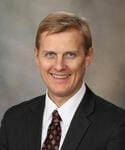 |
Kai Miller, M.D., Ph.D.
Dr. Miller is a pediatric and adult neurosurgeon who specializes in brain tumors, epilepsy, and deep-brain stimulation. He manages patients in both the operating room and in the outpatient setting. His research involves measuring electrical brain activity with patients undergoing therapy with implanted electrodes, to understand brain circuit dynamics and develop new therapies. In addition to Dr. Miller's active clinical and research programs, he teaches graduate students and mentors neurosurgical residents and fellows.
|
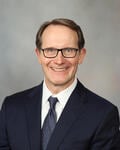 |
Bruce Pollock, M.D.
Dr. Pollock is a world-renowned expert in radiation therapies including stereotactic radiosurgery for cranial neuralgias, tumors, and vascular malformations. He has an exemplary record of training residents and fellows and has held multiple leadership positions in organized neurosurgery and has been heavily involved in performing seminal research.
|
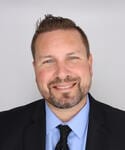 |
Jamie Van Gompel, M.D.
Dr. Van Gompel (M.D. honors and B.S. honors) is a professor in neurosurgery and otolaryngology specializing in endoscopic/open skull base as well as epilepsy at Mayo Clinic in Rochester, Minnesota. He completed his undergraduate and medical school training at the University of Wisconsin at Madison. He has worked at the NIH as well as completed a Howard Hughes Fellowship in research. Dr. Van Gompel's neurosurgical training was undertaken at Mayo Clinic and he went on to complete a complex cranial fellowship under the tutelage of Dr. Harry van Loveren at the University of South Florida. His current clinical and research interests involve device development for epilepsy and treating skull base tumors such as pituitary adenomas. Dr. Van Gompel's active research is on stimulation for epilepsy and other novel indications as well as device development.
|
/0x0:512x512/prod01/channel_2/media/mccms/content-assets/academics/residencies-and-fellowships/surgical-critical-care-fellowship-minnesota/surgical-critical-care-main-photo-3618102-0011-hero-mobile.jpg)